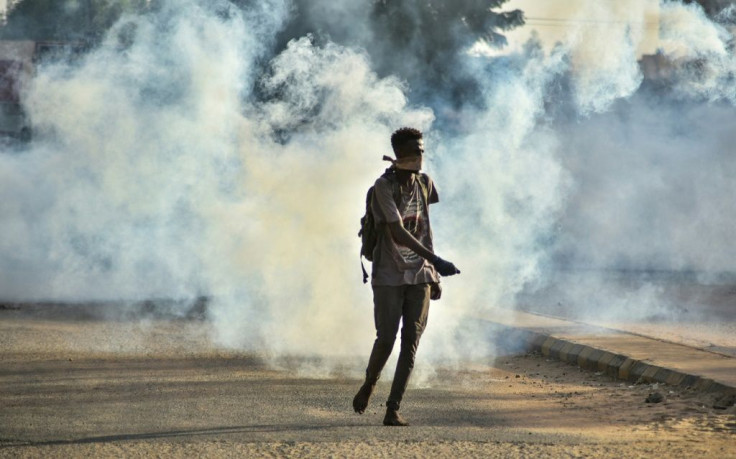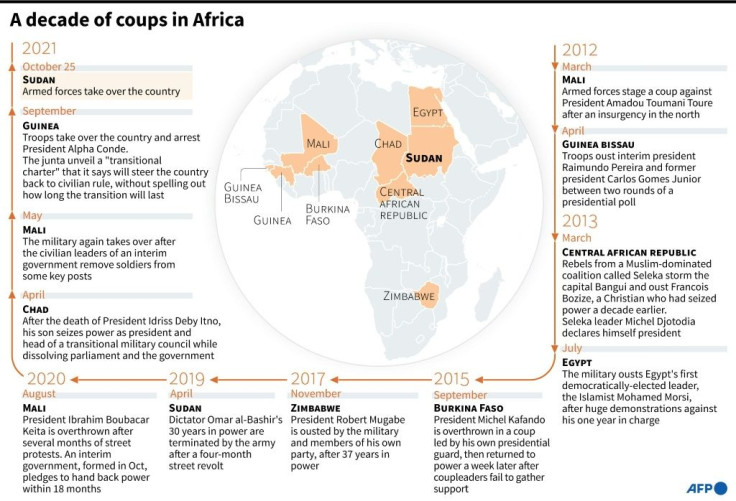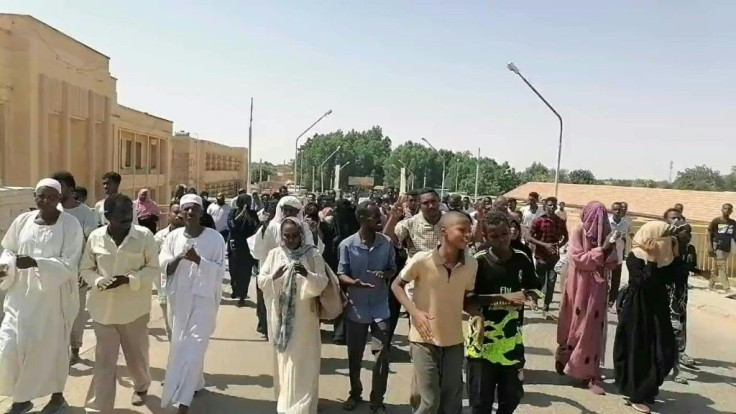Opposition To Sudan Military Coup Grows
The decision by Sudan's Abdel Fattah al-Burhan to dissolve the country's government this week sparked angry street protests but he is also facing mounting opposition on multiple other fronts.
Top civil servants, including Sudanese ambassadors, as well as other groups and institutions have riled against the top general's move.
And it started even before Burhan -- Sudan's de facto leader since the 2019 ouster of veteran autocrat Omar al-Bashir -- made plain his power grab in a state television address on Monday.
The ministry of culture and information appears to be the first institution to rebel, making use of its Facebook page.

As the day of the coup went on it published information on the arrest of Prime Minister Abdalla Hamdok, cabinet ministers and other officials.
Each update was accompanied by the hashtag: "no going back is possible".
That phrase has long been the rallying cry of supporters of civilian rule in Sudan, which has been ruled since August 2019 by a joint civilian-military council as part of a planned transition to full civilian control.
On Wednesday, the Khartoum governorate added its voice to those opposing the coup even as the governor was among those ordered detained by Burhan.
A statement signed by "director generals" and other officials at the governorate "condemns General Burhan's military coup" and said there would be "no return" to the autocracy of the past.

It also voiced support for "civil disobedience" and demanded that "essential goods" such as flour and emergency medical supplies be made available to protesters.
Diplomats also joined the fray to declare their opposition to the takeover, among them Noureddine Sati, Sudan's ambassador to the United States since 2020.

Some Sudanese ambassadors spoke openly in front of members of their community saying they back the "revolution" and "oppose the coup", while some put their views down in writing.
Burhan hit back by sacking six of the country's ambassadors -- including to the US, EU, China, France and Switzerland.
He shot back at Burhan in a video posted on social media, calling the top general "the chief of putschist authorities" and refusing "this illegitimate and unconstitutional sacking".
Gendi also accused Sudanese security forces of carrying out "the worst ever repression" against the protesters.
Foreign Minister Mariam al-Sadiq al-Mahdi -- whose father was the prime minister ousted by Bashir's 1989 coup -- has praised the diplomats for rejecting the coup, saying their position was "a victory for the revolution".
Mahdi is one of the few civilian leaders not in detention and has become a leading critic of Burhan.
Even before the coup, Industry Minister Ibrahim al-Sheikh had joined a mass protest demanding a speedy transfer to civilian rule.
Now he is among government ministers arrested by the army.
Some of his colleagues from the Forces for Freedom and Change (FFC) -- the civilian umbrella group which spearheaded demonstrations that led to the army's overthrow and jailing of Bashir -- are still free.
On Thursday, those FFC cabinet ministers urged citizens to continue to oppose the military with "peaceful protests" and campaigns of "civil disobedience", including a general strike declared by members of oil sector syndicates.
A statement by these ministers posted on the Facebook page of the culture and information ministry said "resistance" against the military must continue "until the end of the putsch and the return of constitutional legitimacy".
Meanwhile Sudan's state media has remained mum on the violence and political instability wracking the country.
The military has taken over the state broadcaster and ordered journalists working for state news agency SUNA off the premises.
© Copyright AFP 2024. All rights reserved.







